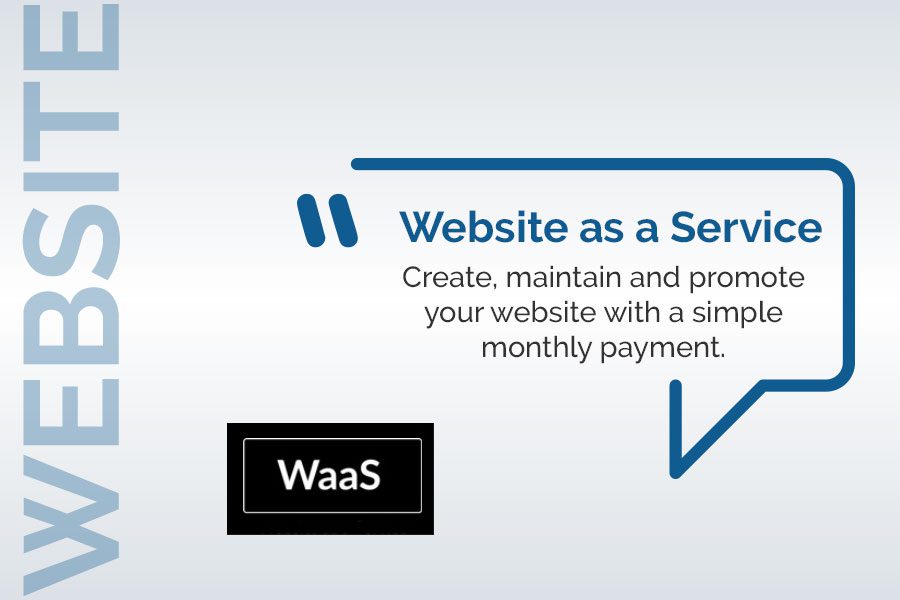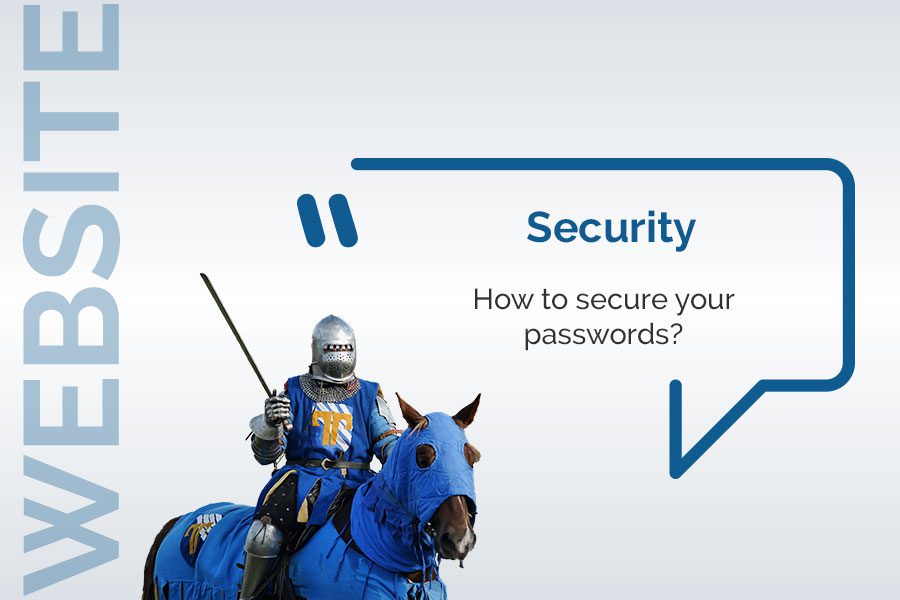
How to secure your passwords?
August 31, 2021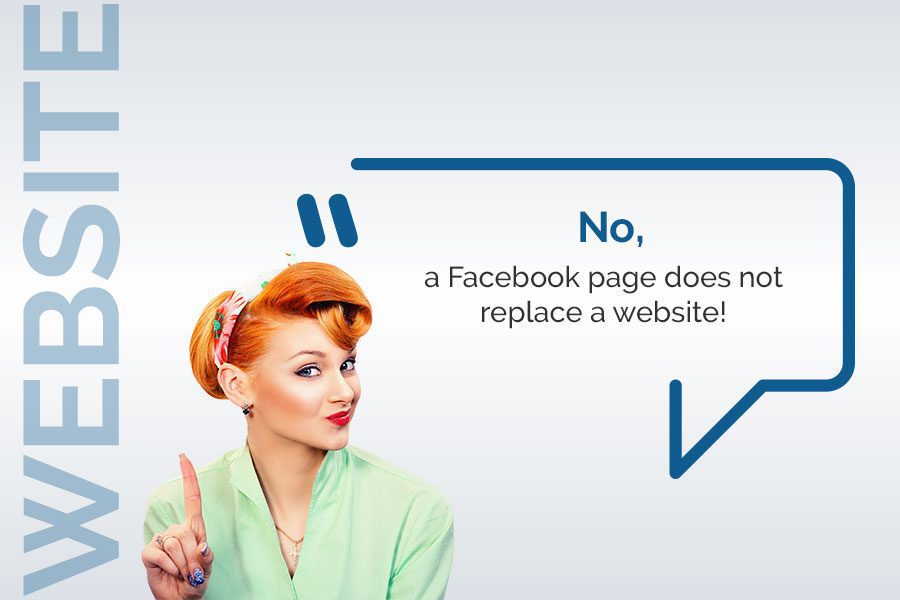
No, a Facebook page does not replace a website!
June 1, 2022

You probably know the quote attributed to Coco Chanel; “you don’t get a second chance to make a good first impression”. It also applies to your website, it will not escape it, it will be judged without restraint and in a few seconds by its visitors. The efforts you put into animating it as well as all the budgets you devote to attracting visitors will be in pure loss, if in their eyes your website does not inspire confidence.
The confidence that a website inspires is composed of two elements: reputation and security, each of them being composed of two sub-elements as shown in the diagram below.
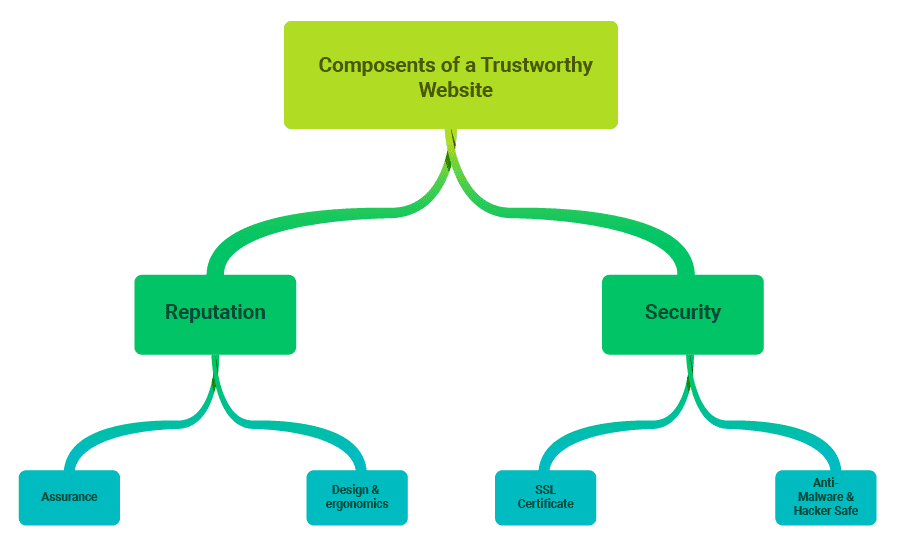
| Reputation | Security |
|---|---|
| Reputation is the set of signals that the visitor of a website perceives. If these signals give him the assurance that this site is appreciated and considered serious by other users, and that the products ordered on this site will be shipped on time, or that the services offered are of quality, a first link of trust will be established with this visitor. | Security means for the user of a site that it is secure and that there is no risk of data piracy. Security is therefore the element that confirms to the visitor that he is in the right place and that he is not at risk. We will talk about security in another article. |
The pyramid of confidence shows that trust is not obtained instantaneously, it is an evolutionary process composed of stages during which a level cannot be reached without the visitor having raised the questions he has at the lower level.
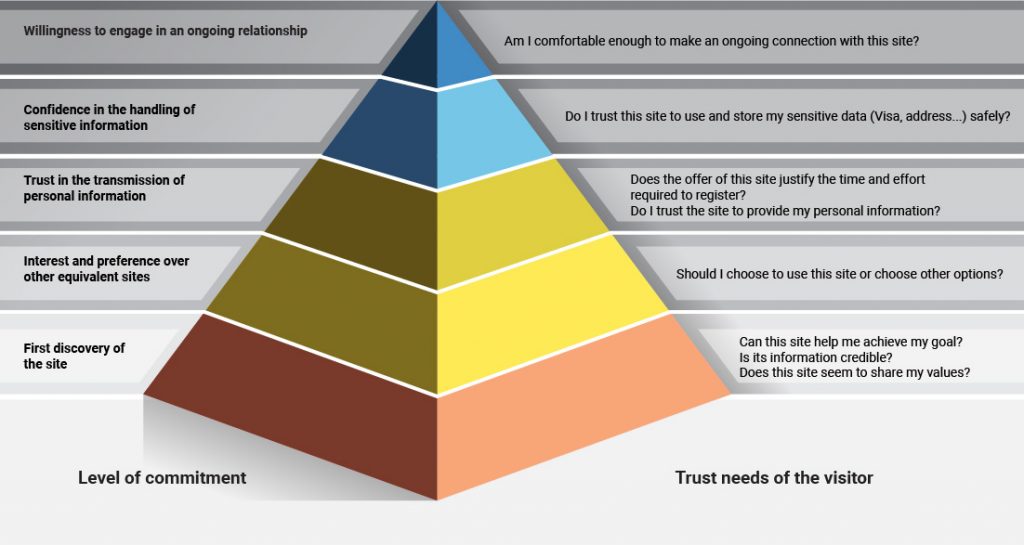
The elements that make up a reputation.
Not all individuals are influenced in their opinion by the same things; demographic and socio-cultural factors, to name a few, create consumer groups with more or less homogeneous contours and behaviors.
So, what impresses or reassures one demographic group will not work for all groups; simply put, your website will not have the same content and tone depending on whether your targets are Boomers or Millennials, for example. It is therefore fundamental to have a solid understanding of your customers and to know their codes and values well, in order to deploy the levers that will capture their trust.
We have identified 12 levers to improve the reputation of a website. The order in which we deal with them does not correspond to their objective value, which, as we have seen, is subjective and specific to each category of visitor.
1- The number of customers
Some websites highlight this information on the home page. A large number of customers means above all that the product or service proposed sells, which is after all the most reassuring element for a visitor.
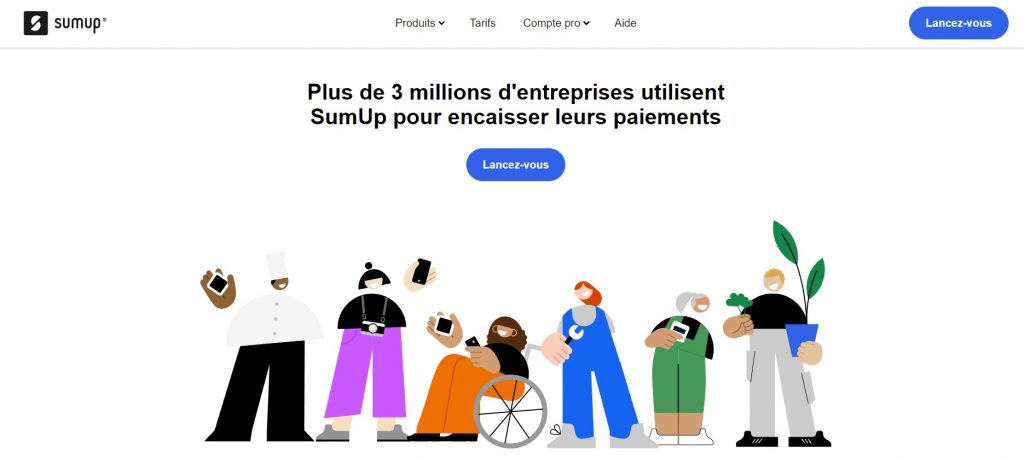
2 – Quote reputable customers
Showing references from well-known or demanding customers on your site guarantees visitors that they are on a site that knows how to satisfy customers who are expected to be demanding.

3 – Cite testimonials and reviews
Testimonials build trust, especially since they are perceived by visitors as non-promotional content. Remember that the Internet allows consumers to feel in control of their decisions. The testimonials and comments published on the Internet help them form their own opinions.
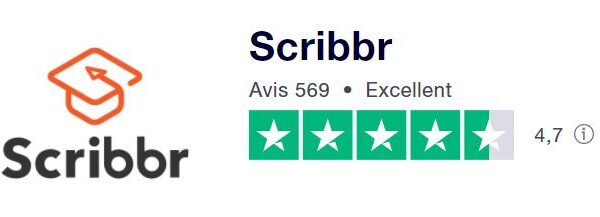
Reminder: It is advisable to be very vigilant on the reviews posted by visitors and especially by your followers. Many people use social networks as real after-sales services where they know they will be read by your audience. So thank regularly those who post a positive comment and deal with the requests as quickly as possible as well as the inevitable dissatisfied people to whom you will have to answer tactfully to try to soften them up or make them change their mind.
4 – Displaying press endorsements
In order to establish a solid reputation, many companies post their press reviews. The objective here is to show that they are recognized and have caught the attention of journalists.

5 – Highlighting experience
Companies with years of experience inspire confidence, this seniority gives them a role of expert in the eyes of visitors, it also suggests that they have greater know-how than the competition.
6 – Show off awards
Awards won by a company that show, for example its capacity for innovation, its commitment to a cause, awards won in competitions,… obviously help to give the visitor a more reassuring image of the company.
7 – Displaying guarantees of good practice or recognized labels
You have probably seen these awards displayed on many websites:
- CSR (Corporate Social Responsibility) compliance
- Company certified by the Superdréckskëscht
- Made in Luxembourg
- And many others…
They all answer to precise specifications to which the company submits itself in order to improve the quality of its services, to decrease its ecological impact, to contribute to the local trade… If they are judiciously chosen they can help to comfort the visitors.
8 – A professional quality website
Often, the website is what forms the first impression that a company gives. That’s why not only the design, but also the writing and the usability are essential. It can make or break a sale, and maybe even a reputation. With design, it’s all about the details. Everything counts and nothing should be overlooked. If you don’t feel ready to take on all of this yourself, we suggest you contact this friendly web design agency.
9 – The presence on social networks
The number of followers of a company on social networks is not the most important criterion, after all some small businesses only reach a limited niche of customers and have no interest in increasing the number of their followers. Remember that what is decisive in the eyes of visitors who will visit your Facebook or Linkedin page is above all:
- The quality and frequency of your publications;
- The ratio number of likes / number of followers of your publications;
- The comments published under your publications;
- Your ability to keep your community alive and to provide useful answers to the questions and comments that are sent to you.
10 – Animate your site, for example offer free trials
Commerce sites often offer trials. Trials eliminate the risk for visitors, who then have one less reason not to try a product. This is a clear indication that the company has confidence in its product.
Doing a trial may cost the company a little bit of money, but the return on investment can be positive due to increased enrollment.
11 – Privacy Policy
It is essential that your website’s privacy policy is visible and clearly states:
- The company name, address and contact information
- The name of the person responsible for the site;
- The policy of the treatment of the collected data (GDPR);
- The management of cookies (with the possibility to refuse them).
12 – Reassure your customer after an online purchase.
To be professional and reassuring, a transaction on an e-commerce site must respect the following steps.
- After the payment of his order, the customer receives immediately an email confirming that the order has been taken into account.
- The expected shipping date is also indicated in this email.
- Once the product has been shipped, the customer receives an e-mail with the details of the order and the tracking number of the carrier.
- Two weeks after delivery, the customer receives an email from the customer service manager tracking the order and asking for feedback on the customer’s experience.
The sender’s email and phone number are included in all these emails.
Bonus: An FAQ is another good way to explain to the customer how the site works and to reassure them. A conversational “Bot” is also a plus, it allows the rapprochement between the customer and the company, but forget this option if you are not able to bring very fast answers on this channel.

